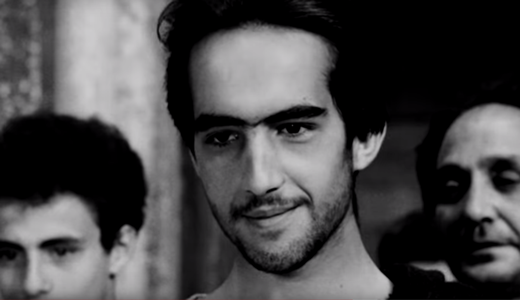I just finished watching Mary Magdalene, a high-wattage, low-Scripture take on the life of Christ as seen through the eyes of one of his most prominent followers. My full review will be published later this week, but let me offer one thought now: I was struck by how true it felt in places and how wrong it was in others, with those moments sometimes separated by mere seconds of screen time. And despite a parade of A-list actors—Rooney Mara as Mary, Chiwetel Ejiofor as Peter and Joaquin Phoenix as Jesus—I was also struck by how the film was, both theologically and narratively, upended by its own agenda.
‘Course, everyone who makes a Jesus movie has an agenda. And as our hearts and minds turn to Calvary this time of year, there are no lack of Jesus movies—and no lack of points of view—to engage with.
Given that the Gospels have enthralled readers for millennia, perhaps it’s not too surprising that the very first movie about Jesus was, also, one of the very first movies ever. The Life and Passion of Jesus Christ was first released in France in 1902, but its makers played around with it for another three years and unveiled it again in 1905. It obviously looks a bit crude now, but the special effects were gobsmackingly great for an age when most folks didn’t even have electricity.
Since then, dozens upon dozens of films have brought Jesus to the screen. Those seeking to inspire the faithful tend to stick close to the script and Scripture. The Gospel of John, for instance, was a word-for-word retelling taken straight from the book itself. Last year, a collection of four gospel movies—rigorously faithful video renderings of Matthew, Mark, Luke and John—was released. (It was titled The Gospel Collection, of course, and you can still buy it if you’d like. )
But that’s not always the case. Risen, one of my favorite movies about Jesus, was a wholly fictional story framing the Easter narrative as a whodunit. Mel Gibson’s wildly successful The Passion of the Christ contained plenty of Scripture, but it also brought in extra-scriptural elements and stories—as well as perhaps the most graphic depiction of Christ’s crucifixion ever committed to celluloid. The faithful who made The Passion the most successful R-rated movie in history didn’t seem to mind.
But Jesus’ story has attracted many a secular filmmaker, too—artists who wanted to put their own spin on Jesus’ life and death and (if they were so inclined) resurrection. The results have been mixed.
Perhaps the most notorious of all was The Last Temptation of Christ. Though director Martin Scorsese has always considered himself a man of deep, inquisitive faith—a faith that often filters into his movies—his take on Nikos Kazantzakis’ controversial 1955 book of the same name was deeply despised by many Christians. I was in high school when the film was released, but I still remember the picketers outside the only theater in town that deigned to show it.
In 2016, a film called The Last Days in the Desert showed up in a handful of art houses. Featuring Ewan McGregor in the dual roles of Jesus and Satan and filmed by multi-time Oscar-winning cinematographer Emmanuel Lubezki, Last Days gave us a very human Jesus that I thought had some interesting things to say. But few people besides me actually saw it.
And then occasionally, a hybrid of Scriptural rigor and artistic vision comes together to give us a surprising film. Perhaps no movie is more surprising than Italy’s 1964 The Gospel According to St. Matthew. The film was directed by Pier Paolo Pasolini, an avowed atheist and admitted Marxist. But in 1962, he read through the Gospels “from beginning to end, like a novel,” and declared it “the most exalting thing one can read.” His film—which leaned so heavily on the book that almost every word of dialogue is pulled straight from the Bible—is considered something of a spiritual cinematic masterpiece. While some have seen some of Pasolini’s Marxist leanings in his very radical Jesus (and lest we forget, Jesus was indeed the ultimate game-changer), faithful moviegoers of all stripes have embraced this version without reservation. L’Osservatore Romano, the Vatican’s own newspaper, called it “the best film about Jesus ever made.”
I have to admit that I’ve not seen The Gospel According to St. Matthew. Perhaps this is the year. If I had to name my own favorite movie about Jesus, I might point to Ben-Hur (a 1959 epic that holds up really well today and was, in its original book form, called “Ben-Hur: A Tale of the Christ”). I really found Risen engaging. And for all its bloody excesses, I was moved by The Passon of the Christ, too.
But now I want to hear from you. What do you think is the best movie about Jesus ever made? Do you have a go-to film to watch around Easter? Let me know down below, or chime in on Facebook and Twitter. I’d love to hear what you think.






Recent Comments